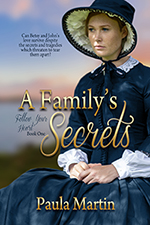https://www.bookswelove.com/donaldson-yarmey-joan/
Over my writing career I have written non fiction travel books, and mystery, historical, and holiday romance novels. One year, after taking a two day, play writing course, I wrote a stage play. I entered my
play in the Fringe held in the small town where I lived. It was accepted and then came the hard part: finding actors and props, producing, and directing it.
I needed a male
and a female lead actor and I asked two people who had been in plays in our
local theatre before. They agreed and I gave them each a copy of the play. We
met and had a run through with us discussing how we each saw the characters.
Their interpretation of their character's actions and attitude were sometimes
different from mine, but, other than a few places where I felt a certain
delivery was needed, I let them decide how to play the part. Through our many
rehearsals with the props, which my husband, Mike, was in charge of, the
characters evolved and took shape as we discovered better ways for them move,
react, and relate.
I also needed
actors for a party scene and I approached people I knew and/or worked with in
my quest. Even though I told them that they would only be on stage for less
than five minutes, that all they had to do was listen to the male actor beak
off about how good he was, and that they had no lines, many gave a flat no,
explaining that they could never get up on stage in front of an audience. Some
agreed so I gave them the times of our next two rehearsals. Most of them never
showed up. I kept asking people: my cats' vet, the owner of a new store in
town, the person who donated some props. But I only had the same two people
show up for any of the rehearsals and it looked like Mike and I would be making
our acting debut. I was beginning to worry. Maybe I would have to drag up some
of the audience members.
On the evening of
the first presentation, two of the three who had attended rehearsals, two
actors in another play and I made up the attendees of the party. For the
Saturday matinee the partiers were, one of my three regulars along with two
members of my dragon boat team, the two actors from the other play, a theatre
volunteer, and myself.
One thing I did
learn was that for something like the Fringe where plays are being presented
one after the other, having a lot of props is not a good idea. Because I was
showing a story instead of telling a story, I had over forty props, some large
ones being: fridge, stove, desk, computer, sewing machine, two chairs, table;
smaller ones being: duster, broom, envelope, paper, boxes, material, pens, wine
bottle and glasses, and many more. The play after me had only two tables, two
chairs, a laundry basket and some beer bottles. Another play I watched had some
tea cups and teddy bears.
On the first
evening there were going to be four separate plays, mine being the first. That
was perfect because it gave us time to set up our scene. However, at the end,
we had to get our props off stage so that the next play could set theirs up
before their showing. Our actors became stage hands and things disappeared in a
hurry. The same happened on Saturday afternoon.
The important
thing I learned was that while I had written the words, I was at the mercy of
the actors to show up for the rehearsals, learn their lines, and speak those
words on stage. My female lead was off book (I did get to know some of the
lingo) quickly, but the male lead found it harder to remember his lines. He
also missed some of the rehearsals.
Putting on a
stage play isn't like making a movie. You don't get to go back and redo a
scene. When asked, the way I put it is, opening night did not go as rehearsed.
To be honest, it wasn't even close. The male character kept forgetting his
lines or changing them which threw the female character off, as well as the
lighting guy and Mike who had to operate a smoke machine.
The Saturday
afternoon presentation went better. He still missed many of his lines but the
audience laughed when they were supposed to and they understood, and laughed
at, the twisted ending. I was elated and hearing that laughter made the whole
process worthwhile. And I do believe I will try another play for next year, but
I will keep the props to a minimum and have the actors tell the story instead
of show the story.
While there were
many mishaps and problems getting my play to the stage, the most memorable is
about our wine bottle. We needed a wine bottle for the opening scene, so I
rinsed one out and filled it with water. We used it for our first on stage
rehearsal and left it along with our other props for our full dress rehearsal
the next evening. When I went to find it for that rehearsal, it was gone. We
searched everywhere and couldn’t find it, so we used a beer bottle in its
place. We laughed and hoped that the person hadn't decided to take it as a
hostess gift to some fancy dinner. I found another wine bottle for our opening
night. At the end of the evening I discovered our first bottle by the back
door, empty. That person must have thought it was the weakest, worst tasting
wine ever made.





























.jpg)
